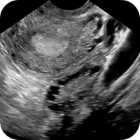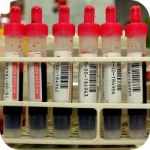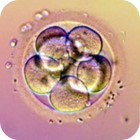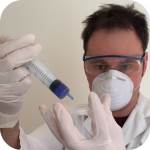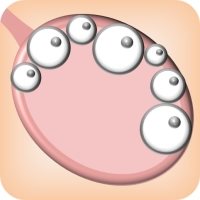
What is PCOS?
PCOS is short for Polycystic Ovarian Syndrome, which is a condition that results from a hormonal imbalance.
Affected women have higher levels of insulin secretion and resistance, which results in higher than normal levels of male hormones (androgens), such as testosterone. These hormones affect the development of the egg within the follicles of the ovaries. They tend not to mature as normal, and therefore women either do not ovulate, or ovulate on an irregular basis.
The condition gets its name from the classical appearance on ultrasound of multiple cysts (small follicles) in the ovaries.
Women with PCOS are also at risk of other long term conditions due to these hormonal changes. There is an increased risk of developing type 2 diabetes (which can also affect your fertility) and of developing diabetes during pregnancy. This is as a result of the raised insulin levels and the body’s reduced ability to manage blood sugar levels.
The presence of higher than normal levels of the male hormones increases the risk of developing cardiovascular disease such as high blood pressure or having a stroke.
If women have infrequent periods, they may also have a slightly higher risk of developing endometrial cancer (cancer of the lining of the womb).
PCOS is also known as: Hyperandrogenic Anovulation or Stein-Leventhal Syndrome
What are the chances of having PCOS?
This is the most common cause of fertility problems in women in the UK, with up to 10% of women of reproductive age being affected.
About 25% of women in the UK will have ultrasound evidence of polycystic ovaries, but no hormonal changes characteristic of the syndrome. At present, it is not known whether this is a “milder” form of the condition, or if it means that the symptoms are more likely to develop later in life. This means that women can be affected in varying degrees by this condition, with some having resultant reduced fertility, and others conceiving naturally, probably without even being aware that they may have the condition.
PCOS Symptoms
The most common symptom of PCOS is irregular, infrequent, or even absent, periods.
Due to the raised level of testosterone, women may also experience acne and / or hirsutism (male pattern hair growth such as hair on the face and chin).
Weight gain is another common feature, and is a particular problem as symptoms tend to be worse in women who are overweight. What makes this worse is that women with PCOS often find it harder to lose weight.
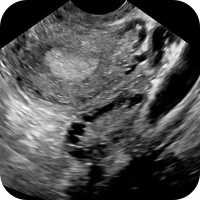
PCOS Diagnosis
For full diagnosis of this syndrome there are 3 criteria, of which 2 need to be present:
- Irregular and infrequent periods
- Multiple cysts on the ovaries (as seen during ultrasound examination)
- Typical hormonal changes – raised testosterone levels, raised LH:FSH ratio, raised sex hormone binding globulins
Therefore, if you have some of the clinical features which may suggest the presence of PCOS, a blood test and pelvic ultrasound would allow for the diagnosis to be made or excluded.
PCOS Treatment
There are various treatments for the symptoms of PCOS, but at the moment there is no treatment to get rid of the syndrome entirely.
Symptom treatment generally depends upon the main problem of concern for the woman.
However, the main thing that can help is losing weight if the woman is overweight. This can result in the return of a regular cycle with normal ovulation. The weight loss needed is often less than you would expect, with a reduction in just 5% of the current weight being sufficient in a lot of cases for ovulation to resume.
Exercise is very beneficial. Even small increases in your levels of cardiovascular activity can help with the return of ovulation. Also, both losing weight and regular exercise will have beneficial effects of reducing your risk of developing cardiovascular disease and diabetes in the future.
In women who are wishing to conceive then there are medications which can stimulate ovulation such as clomiphene. This is generally effective with 6-month pregnancy success rates of around 50%. If this is not effective injectable medications to stimulate ovulation can be used. Women with PCOS can be very sensitive to these medications however, and so they need regular ultrasound assessment to ensure that it doesn’t work too well and result in multiple pregnancies.
Where this is not effective, IVF treatment is another possibility with good outcomes, as is a procedure called ovarian drilling.
Another medication which is sometimes prescribed to women who are not ovulating and who are overweight is a tablet called metformin. This is better known as a treatment for diabetes, and is used to reduce insulin resistance. However, metformin is not licensed in the UK for fertility treatment, and there is some disagreement between specialists regarding how useful it is in women trying to conceive.
If the woman’s main concern is irregular periods, then the contraceptive pill is usually very effective. There are also various methods of managing the symptoms of acne and unwanted hair growth.
PCOS Associated Problems
If you have or think you might have PCOS, you may also want to read the sections on Diabetes and your Fertility and Anovulation.
Links to Popular Related Pages
